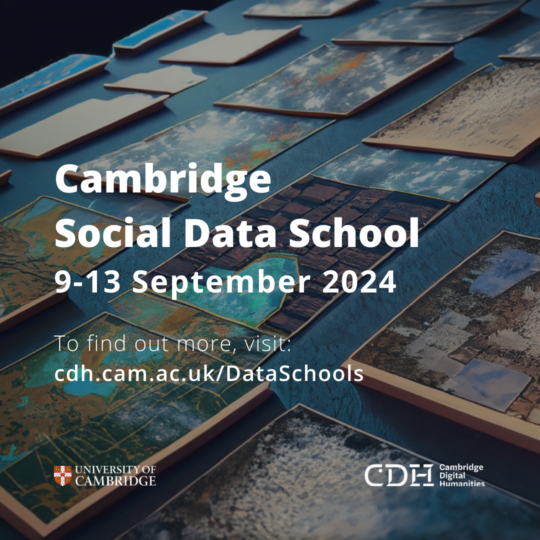| 25 Oct 2013 | 11:00am - 3:00pm | SG2, Alison Richard Building | |
- Description
Description
Marianne Maeckelbergh (Leiden), Anne Alexander (Cambridge, Digital Humanities Network) and Sian Lazar (Cambridge, Social Anthropology) lead a workshop for graduate students and researchers studying social movements in online environments.
Over the past two decades the use of networked digital technology has become part and parcel of social movement organizing for many, perhaps most, movements. Especially in the last five years, with the rise of mobile networked devices, the presence of these technologies in the very organizational structures of social movements has become essential to an analysis of political mobilization and social change. But how can we analyse the impact of these technologies? How can the use of digital technology be understood as part of a broader organizational process that takes place simultaneously online and offline, here and everywhere?
Where can the researcher position herself to be able to follow people, things, ideas, actions from the streets, homes, bars, meeting rooms to the tweets, Facebook posts, Titanpads, blogs, forums and visuals that are circulated across vast distances? How can researchers contextualize information in/from the virtual sphere? How can we understand the ways social movement actors contextualize and give meaning this information? Given that streets and bytes don’t map onto each other perfectly, and have very different spatial logics, how can we keep track of both at once?
Observing the digital traces left by social movements in online environments can yield rich insights for researchers. Yet, as this workshop will explore, this research process can also create risks and pose challenges both for researchers and social movement participants.
The workshop will cover the following interconnected themes:
• Establishing trust and credibility
• Drawing the boundaries between private and public
• Identity, anonymity and visibility
• The relationship between ‘online’ and ‘offline’
• Researchers, their “subjects” and the challenge of consent
We will ask whether working in online environments requires researchers to develop new methods and practices, or whether the methodological and ethical frameworks which guided scholarship in the pre-Internet era simply need adapting to fit the needs of digital research.
Attendance is free and open to graduate students and staff at the University of Cambridge, but places are limited. Participants will be asked to contribute a short description of their research topic and methods, as well as a methodological or ethical question or problem they would like discuss to during the second session of the workshop.
This event is now full. To register for the waiting list please email Michelle Maciejewska.
How to book: Use the online booking form on the righthand side of the page to reserve a place and in addition please send description of your research methods and the problem or question you would like to share with the workshop (no more than 1 page long) to Dr Anne Alexander, Cambridge Digital Humanities Network (raa43 @ cam.ac.uk).





